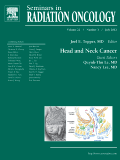
SEMINARS IN RADIATION ONCOLOGY
Scope & Guideline
Elevating Clinical Practice with Cutting-Edge Insights
Introduction
Aims and Scopes
- Multidisciplinary Collaboration in Oncology:
The journal emphasizes the importance of collaboration among various specialties in oncology, including imaging, surgery, and medical oncology, to enhance patient care and treatment outcomes. - Innovative Radiation Therapy Techniques:
A core focus is on the exploration of novel radiation therapy modalities, including spatially fractionated radiotherapy and MR-guided techniques, aimed at improving precision and efficacy in treatment. - Integration of Technology and Data Sciences:
The journal highlights the role of data science and artificial intelligence in refining treatment planning and clinical decision-making, fostering a data-driven approach to radiation oncology. - Personalized and Precision Medicine:
A significant theme is the personalization of radiation therapy based on molecular and genetic profiling, aiming to tailor treatments to individual patient needs for improved efficacy. - Patient-Centered Care:
There is a consistent focus on prioritizing patient-centered approaches in radiation oncology, addressing quality of life, patient-reported outcomes, and the integration of patient preferences into treatment planning. - Education and Workforce Development:
The journal underscores the need for ongoing education and training in radiation oncology, ensuring that professionals are equipped with the latest knowledge and skills to enhance patient care. - Research on Tumor Microenvironment and Immunotherapy:
Investigating the interaction between radiation therapy and the tumor microenvironment, including the effects on anti-tumor immunity and the potential for combining radiation with immunotherapy.
Trending and Emerging
- Sustainable Practices in Oncology:
Emerging discussions on environmentally sustainable practices in radiation therapy facilities highlight a growing awareness of the ecological impact of healthcare, pushing for greener oncology solutions. - Adaptive and Personalized Therapy Approaches:
The trend towards adaptive therapy, which tailors treatment based on real-time patient response, is gaining traction, indicating a shift towards more responsive and individualized cancer care. - Integration of Imaging and Radiotherapy:
There is an increasing emphasis on the collaboration between imaging technologies and radiation therapy, particularly with MR-guided techniques, to enhance precision and treatment outcomes. - Telemedicine in Radiation Oncology:
The rise of telemedicine as a viable option for patient consultations and follow-up care is a significant trend, especially in the context of increasing demand for accessible cancer care. - Data-Driven Decision Making:
A surge in interest surrounding the application of artificial intelligence and data analytics in treatment planning and patient management reflects a shift towards a more data-centric approach in radiation oncology. - Interdisciplinary Research and Collaboration:
The focus on interdisciplinary approaches, combining insights from biology, physics, and clinical practice, is emerging as a key theme, fostering innovative solutions to complex treatment challenges.
Declining or Waning
- Traditional Radiotherapy Techniques:
There is a noticeable decrease in publications focusing on conventional radiotherapy methods as newer, more advanced techniques gain prominence, indicating a shift towards innovative approaches. - Generalized Approaches to Cancer Treatment:
Research centered on broad, non-specific treatment strategies is becoming less frequent, giving way to more tailored and precision-based methodologies that consider individual patient characteristics. - Basic Radiobiology Studies:
Studies focusing solely on basic radiobiology without direct clinical application are appearing less frequently, as the journal emphasizes translational research that connects laboratory findings to clinical practice. - Palliative Care in Radiation Oncology:
Although still relevant, the discourse on palliative approaches within radiation oncology has become less central, possibly due to a growing focus on curative and innovative treatment strategies. - Global Health Disparities:
While initially highlighted, topics related to global disparities in access to radiation oncology services are receiving less attention, potentially overshadowed by more immediate clinical innovations.
Similar Journals

Turk Onkoloji Dergisi-Turkish Journal of Oncology
Shaping the future of oncology with dedicated research and expertise.Turk Onkoloji Dergisi - Turkish Journal of Oncology, published by KARE PUBL, serves as a vital platform in the field of oncology, specifically catering to the Turkish-speaking research community and contributing to global discourse. With an ISSN of 1300-7467, this journal, which has been in circulation since 2007 and continues until 2024, recognizes the importance of advancing medical knowledge in cancer research through rigorous peer-reviewed articles. Although currently positioned in the Q4 category of oncology journals with a Scopus rank of #344 out of 404, the journal is dedicated to fostering significant research insights and innovative perspectives on cancer treatment and prevention. While it does not currently offer open access, its content is essential for professionals, researchers, and students aiming to enhance their understanding of oncology developments in Turkey and beyond. The Turkish Journal of Oncology not only aspires to improve the quality of cancer care but also strives to enhance collaboration among researchers, thereby influencing future oncology practices.
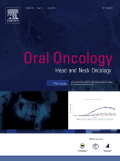
ORAL ONCOLOGY
Unveiling Breakthroughs in Oral Oncology ResearchORAL ONCOLOGY is a leading peer-reviewed journal published by Elsevier, dedicated to advancing the field of oncology with a specific focus on oral diseases and cancers. Since its inception in 1996, this esteemed journal has provided a platform for high-quality research that addresses critical issues in oral surgery, cancer research, and related disciplines. With impressive rankings in Q1 in Oncology and Q1 in Oral Surgery, and recognized as Rank #1 in Dentistry and Oral Surgery by Scopus, ORAL ONCOLOGY consistently publishes impactful articles that contribute significantly to our understanding of oral cancers. The journal is committed to sharing pioneering findings that enhance clinical practices and improve patient outcomes. As a non-open access journal, it provides readers with exclusive access to cutting-edge research, ensuring that professionals, researchers, and students are at the forefront of developments in the field. Situated in the United Kingdom, ORAL ONCOLOGY serves as an indispensable resource for those dedicated to advancing oral health and oncology research through rigorous scientific inquiry and collaboration.
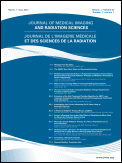
Journal of Medical Imaging and Radiation Sciences
Transforming healthcare through cutting-edge imaging studies.Journal of Medical Imaging and Radiation Sciences, published by Elsevier Science Inc, is a prominent platform dedicated to advancing research and knowledge in the field of medical imaging and radiation sciences. With an ISSN of 1939-8654, this journal plays a crucial role in disseminating innovative studies and insights from 2008 to 2024, providing a valuable resource for researchers, professionals, and students alike. It is positioned within the Q3 quartile in both the categories of Radiological and Ultrasound Technology and Radiology, Nuclear Medicine and Imaging, indicating its growing influence and contributions to these critical areas of healthcare. While it currently does not offer open access, authors benefit from the journal's rigorous peer-review process, ensuring high-quality publications. As the landscape of medical imaging continues to evolve, the Journal of Medical Imaging and Radiation Sciences stands out for its commitment to education and innovation, inviting contributions that explore the latest technological advancements and clinical applications.
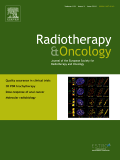
RADIOTHERAPY AND ONCOLOGY
Advancing cancer care through groundbreaking research.Radiotherapy and Oncology is a leading peer-reviewed journal published by Elsevier Ireland Ltd, focusing on the vital fields of hematology, oncology, and radiology. With an impressive impact factor and ranking in the top quartiles (Q1) of its categories as of 2023, it is recognized for disseminating high-quality research that contributes significantly to advancements in cancer treatment and patient care. The journal, which has been in circulation since 1983, aims to provide a platform for original research articles, reviews, and clinical studies that explore the latest innovations in radiotherapeutic technologies and oncology practices. This journal is essential for researchers, healthcare professionals, and students who are dedicated to improving cancer therapies and outcomes. Although it does not offer open access, the wealth of information contained within its pages supports continued education and development in these crucial medical fields.
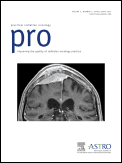
Practical Radiation Oncology
Unlocking Potential in Radiation MedicinePractical Radiation Oncology is a premier journal published by Elsevier Science Inc., focusing on the critically important fields of Oncology and Radiology, Nuclear Medicine, and Imaging. With an ISSN of 1879-8500, this journal serves as an essential resource for professionals and researchers dedicated to advancing the practice and research of radiation oncology. Established in 2011 and continuing through 2024, it has quickly gained recognition, achieving a prestigious Q2 ranking in Oncology and an exceptional Q1 ranking in Radiology, Nuclear Medicine, and Imaging as of 2023. The journal, housed in New York, USA, provides a platform for innovative research and practical insights, aimed at enhancing therapeutic practices and improving patient outcomes. As part of its commitment to fostering scientific dialogue, it also features a range of articles, reviews, and clinical studies that cater to the diverse interests of its readers. Hard-copy availability combined with digital access ensures a broad reach for the latest advancements in the field.

Radiation Oncology Journal
Pioneering discoveries in radiation therapy for improved patient outcomes.Radiation Oncology Journal, published by the Korean Society of Therapeutic Radiology & Oncology, stands at the forefront of cancer treatment research and innovation within the dynamic fields of oncology and radiology. With a focus on disseminating groundbreaking findings and advancements from 2012 to 2024, this journal aims to foster collaboration among researchers, clinicians, and educators dedicated to improving therapeutic techniques and patient outcomes in the context of radiation therapy. Recognized with a prestigious Q2 ranking in both the Oncology and Radiology, Nuclear Medicine and Imaging categories, it ranks 140th out of 333 in its Scopus category for Medicine Radiology and boasts a 58th percentile placement. While operating on a non-open access basis, the journal remains committed to providing valuable insights and updates to professionals in the field from its base in South Korea. As the landscape of cancer treatment evolves, the Radiation Oncology Journal continues to play a vital role in shaping research trends and enhancing the understanding of radiotherapy's role in comprehensive cancer care.
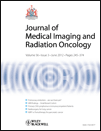
Journal of Medical Imaging and Radiation Oncology
Connecting Scholars to Revolutionize Medical Imaging PracticesJournal of Medical Imaging and Radiation Oncology, published by WILEY, is a pivotal resource in the fields of oncology and medical imaging. With an impact factor reflective of its commitment to advancing research, the journal has maintained a robust reputation since its inception in 2008 and continues to thrive through 2024. It is indexed with an insightful ranking, with a Q2 classification in Radiology, Nuclear Medicine and Imaging, affirming its importance in these disciplines. This journal not only serves as an open access platform, allowing extensive reach and accessibility, but also fosters a scholarly community dedicated to the innovation of imaging techniques and radiation oncology practices. As a key player in disseminating crucial findings and advancements, it appeals to researchers, clinicians, and students who aim to contribute to the evolving landscape of medical imaging and cancer treatment methodologies. The journal is based in Australia, at 111 River St, Hoboken, NJ, and invites submissions that push the boundaries of current knowledge in this critical area of healthcare.
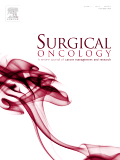
SURGICAL ONCOLOGY-OXFORD
Innovating oncology surgery through comprehensive peer-reviewed studies.Surgical Oncology-Oxford is a prestigious academic journal published by Elsevier Science Ltd, dedicated to advancing the field of surgical oncology. Since its establishment in 1992, the journal has provided a vital platform for disseminating cutting-edge research, clinical advancements, and innovative surgical techniques. With a focus on both surgery and oncology, the journal is ranked in the Q2 category in Surgery and Q3 in Oncology for 2023, reflecting its commitment to quality and impactful contributions. It ranks #107 out of 551 in Medicine_Surgery and #184 out of 404 in Medicine_Oncology as per Scopus metrics, illustrating its significant role in the academic landscape. Although it does not currently offer open access options, the journal's rigorous peer-review process ensures that only the highest quality research is published. By examining the latest surgical methodologies and oncological insights, Surgical Oncology-Oxford plays a crucial role in enhancing clinical practice and improving patient outcomes, making it an essential resource for researchers, healthcare professionals, and students aiming to stay at the forefront of the field.
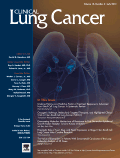
Clinical Lung Cancer
Leading the way in comprehensive lung cancer exploration.Clinical Lung Cancer is a prestigious journal published by CIG MEDIA GROUP, LP, dedicated to advancing the field of oncology and pulmonary medicine since its establishment in 2000. With an impressive impact factor and high ranking within its fields—achieving Q1 status in Oncology and Pulmonary and Respiratory Medicine in 2023—this journal serves as a vital resource for researchers, clinicians, and students alike. Covering a wide scope of topics related to lung cancer, Clinical Lung Cancer offers a platform for innovative studies, clinical trials, and comprehensive reviews that contribute to both theory and practice. While it operates on a subscription basis, the quality of content is reflected in its ranked status within the top quartile of cancer research journals. This journal plays a critical role in shaping the future of lung cancer research and treatment, making it an essential destination for those looking to stay at the forefront of the field.

Physics & Imaging in Radiation Oncology
Pioneering Insights at the Intersection of Physics and OncologyPhysics & Imaging in Radiation Oncology is a premier journal dedicated to advancing the interdisciplinary field of radiation oncology through innovative research and imaging technologies. Published by Elsevier, this open-access journal has made its mark since its inception in 2017, ensuring that groundbreaking findings are accessible to a broad audience. With a strong focus on the integration of physics, imaging techniques, and oncology, the journal occupies esteemed positions in the academic landscape, ranking in the top quartile for Radiation and Radiology, Nuclear Medicine and Imaging as of 2023. The journal serves as a platform for researchers, professionals, and students to share insights and foster collaboration, ultimately improving patient outcomes through enhanced imaging and treatment modalities. Based in Ireland and operating from Radarweg 29, 1043 NX Amsterdam, Netherlands, the journal aims to bridge the gap between theoretical physics and practical applications in clinical settings.